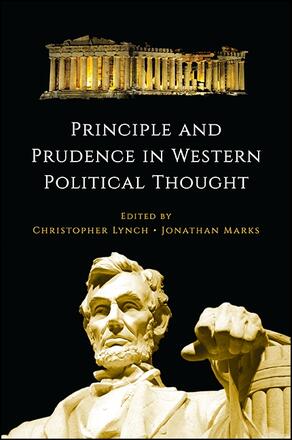
Principle and Prudence in Western Political Thought
Alternative formats available from:
Reflections on principle and prudence in the thoughts and actions of great thinkers and statesmen.
Description
Discussions of the place of moral principle in political practice are haunted by the abstract and misleading distinction between realism and its various principled or "idealist" alternatives. This volume argues that such discussions must be recast in terms of the relationship between principle and prudence: as Nathan Tarcov maintains, that relationship is "not dichotomous but complementary." In a substantive introduction, the editors investigate Leo Strauss's attack on contemporary political thought for its failure to account for both principle and prudence in politics. Leading commentators then reflect on principle and prudence in the writings of great thinkers such as Homer, Machiavelli, and Hegel, and in the thoughts and actions of great statesmen such as Pericles, Jefferson, and Lincoln. In a concluding section, contributors reassess Strauss's own approach to principle and prudence in the history of political philosophy.
Christopher Lynch is Professor of Political Science at Carthage College and the translator and editor of Machiavelli's Art of War. Jonathan Marks is Professor of Politics at Ursinus College and the author of Perfection and Disharmony in the Thought of Jean-Jacques Rousseau.
Reviews
"…[a] superbly edited volume … the editors must be congratulated for putting together an edited volume of superior quality—a volume that is unified in its theme, excellent in the quality of the chapters, and a great joy to read and to review." — Society
"...[a] collection of outstanding essays … The editors have done an excellent job … Highly recommended." — CHOICE
"Principle and Prudence in Western Political Thought contains a series of first-rate essays on a—if not the—central problem of political thought: how should and can abstract and general principles inform contingent, particularistic political life." — Catherine H. Zuckert, coauthor of Leo Strauss and the Problem of Political Philosophy